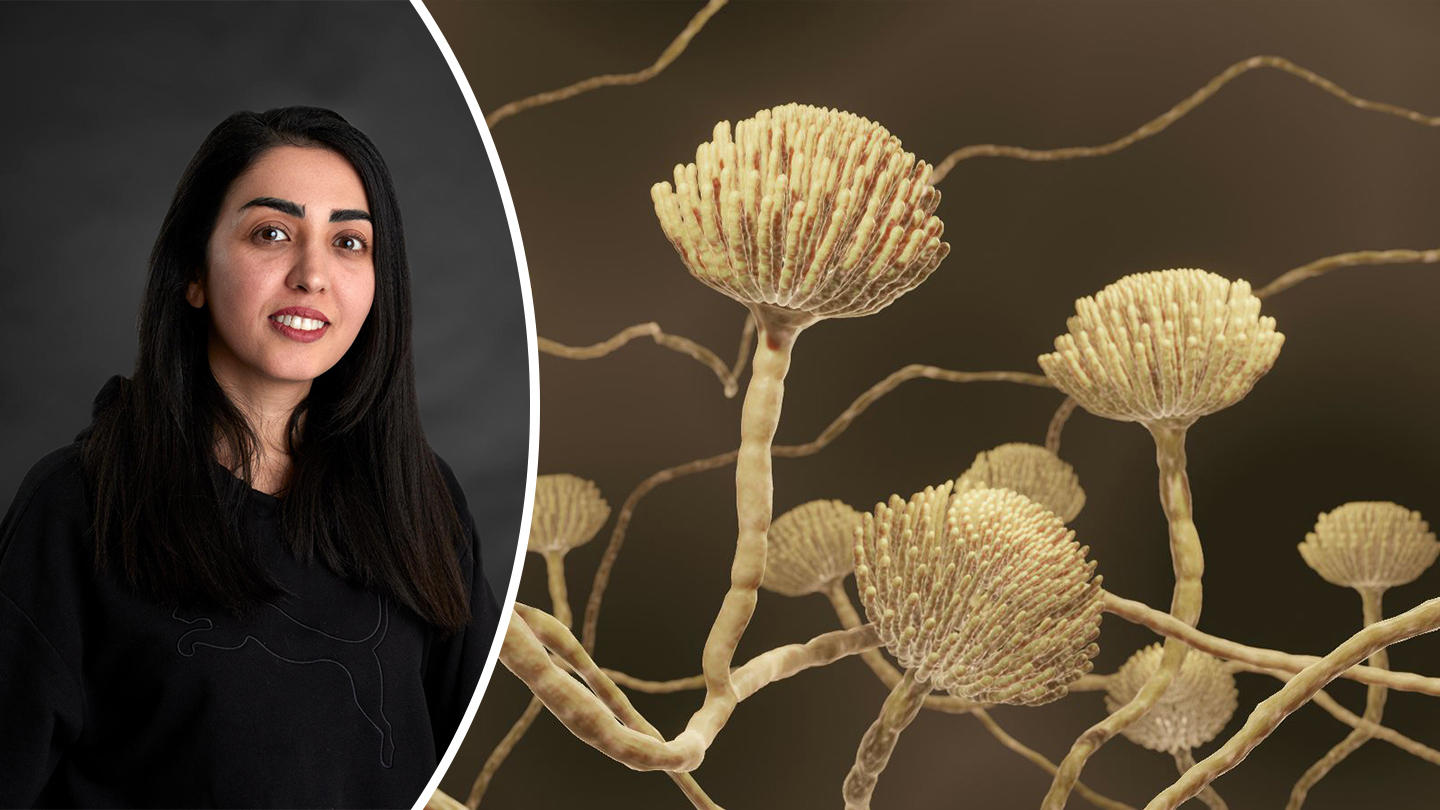Fungi – A sustainable and tasty alternative
2023-09-25

“In my doctoral studies, I focused on harnessing the potential of microbial fermentation, specifically edible filamentous fungi such as Aspergillus oryzae, to address the current shortcomings in our food systems,” said Neda Rousta, who defended her doctoral thesis on 11 September.
Her work delves into various aspects, ranging from optimising the production of fungal biomass using different substrates to investigating the synthesis of the substance L-carnitine by these fungi. Additionally, she explored the possibility of using fungal biomass to create sustainable and nutritious food products, such as fungi burger patties.
Improved nutritional content
In her doctoral thesis, Neda Rousta shows the potential of filamentous fungi as a sustainable and healthy food source. Cultivation trials with Aspergillus oryzae on oat flour resulted in nutritious fungal biomass with an improved nutrient content. In addition, her work demonstrated the fungi's ability to synthesise bioactive substances such as L-carnitine, where Aspergillus oryzae outperformed other fungal species. Neda Rousta was pleasantly surprised by the adaptability, productivity, and nutritious properties of the filamentous fungi.
Tackling societal issues
The University of Borås has been conducting world-leading research on fungi for more than 20 years in the area of Resource Recovery. The research relates to issues such as the environmental sustainability of our food systems and the promotion of human health. Today, conventional animal husbandry is a part of our food systems that contributes to the emissions of a large amount of greenhouse gases. Neda Rousta's work offers a potential solution by showing how fungal fermentation can offer sustainable, nutritious food alternatives, potentially mitigating emissions from traditional agriculture.
When asked about her plans after finishing her thesis, Neda Rousta is eager to continue research.
“Whether in academia or in collaboration with the food industry, I am determined to continue exploring the use of filamentous fungi in sustainable and healthy food production. I hope for continued experiments, to scale up processes, and possibly work with practical implementations.”
A challenging but rewarding journey
When she reflects on her time as a doctoral student, Neda Rousta describes it as both challenging and incredibly rewarding. Her deep dive into microbial fermentation and sustainable food production involved rigorous experimentation, data analysis, and interdisciplinary collaboration.
“The topic itself was fascinating and it feels meaningful to contribute to a more sustainable and healthy future for global food systems,” she concluded.
Neda Rousta defended her thesis on 11 September. Her supervisor was Professor Mohammad Taherzadeh.
Read more about the research at the Swedish Centre for Resource Recovery
Lina Färm. Translation by Eva Medin
Portrait: Lars Ardarve. Fungi: Adobe Stock

